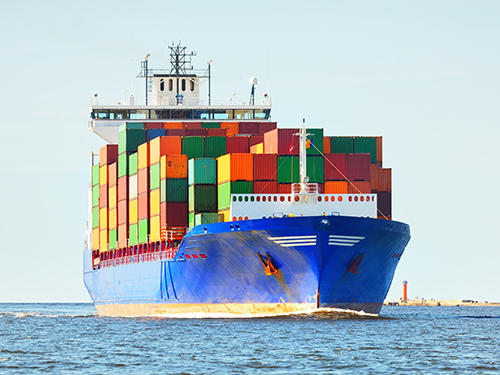Triggered by overcapacity, lower freight rates and the new carbon regulations expected this year, numerous container ships will be sold for scrapping in the near future. In light of this foreseeable surge in the number of discarded box ships, the NGO Shipbreaking Platform has reached out to the largest companies of the sector demanding change in corporate policies and practices by encouraging the pursuit of sustainable solutions.
Several container shipping companies have already been in the spotlight due to the poor management of their end-of-life vessels. NGOs and Danish media revealed the hypocrisy of Maersk when they decided in 2016 to U-turn on their recycling policy and head for the Indian beaches. The profits made by Swiss giant MSC on the back of exploited workers and coastal environments also caused public outcry, and, in 2018, Scandinavian pension funds, including the Norwegian Government Pension Fund Global, divested from Taiwanese container line Evergreen due to the breach of international human rights and the severe environmental damage caused by the beaching of their vessels.
Ships contain many hazardous substances and materials that may negatively affect people and the environment. Hence, it is crucial that their dismantling is carried out in an environmentally sound and safe manner at a recycling destination that can safeguard workers’ health and protect local communities and ecosystems from pollution. Progressive companies and recycling businesses are looking at the EU Ship Recycling Regulation as the only responsible standard regulating this industry. South Asian beaching yards fail to comply with this standard, and more recently two Turkish facilities were removed from the EU List of approved ship recycling facilities.
With increasing focus on sustainability and due diligence, including pressure from investors and clients, many container lines need to revise their ship recycling practices and policies. Beaching is by far the worst industrial practice, as is the practice of down-cycling and re-rolling contaminated scrap steel. Options that operate with standards on safety, circularity and material recovery in line with international labour and environmental law and ESG expectations already exist. With the projected growth in demand for capacity to recycle large vessels, the NGOs call on the box ship sector to show leadership and support the scaling of truly sustainable ship recycling solutions.
Source: Hellenic Shipping News





